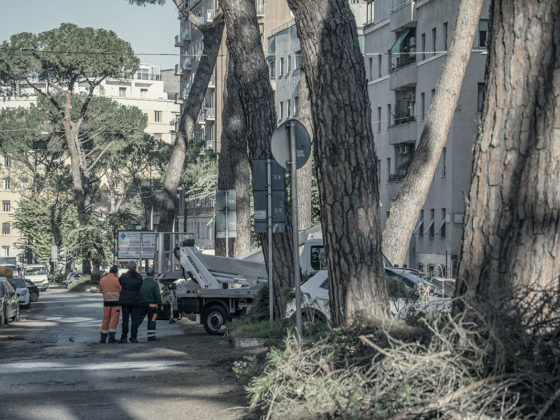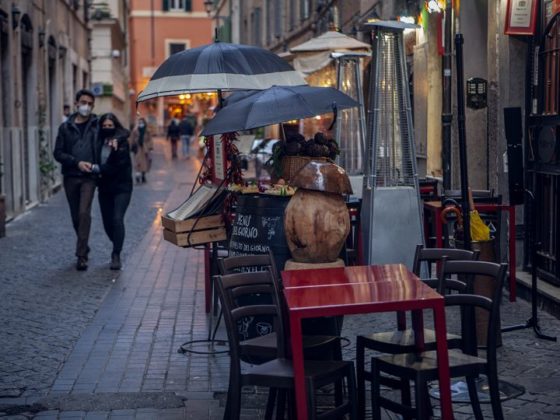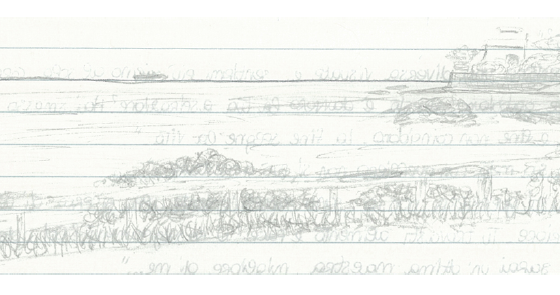Introduction
The technological revolution has determined the transition from an old elitist, top-down, and inaccessible structure of power in the political space to a new more participatory, and open one. The spread of business models that link web applications and self-employed workers represents the affirmation of a networked, informal, and unrestrained structure. This is an epochal change in which people are in control of their time and can make money, do activities, and organize themselves in movements like #metoo, #Blacklivesmatter, and Occupy. Ideas spread easily and globally, and everyone is aware of being able to fulfill their wishes (Stapledon, 1927). From a pyramidal and vertical power structure to another horizontal and fluid, the new influence circulates, information runs fast, and connects users through social media platforms. Online media consumers can participate and affect the global course of events. This is the power of the web that eclipses the old-school power. It is certainly a more inclusive perspective.
The media paradigm of the past is definitely in crisis, and other ways of producing news have been finding space. On social networks and websites, user-generated content is posted by the public and disseminated as a source of information (Johnston, 2016). These contributors are ordinary people who share injustices and inequalities through their own voices, and their content is easily produced and immediately available. Journalists are no longer the only ones telling stories. It is eventually a deviation from dominance (Wall, 2017).
This study aims to analyze political communication and the new power, therefore how the role of the journalist has been changing, paying special attention to two relevant case studies in Italy: Beppe Grillo’s leader of the Five-Star Movement and Matteo Salvini. Due to their ubiquity, social media platforms are used by political leaders for communicating and civic engagement. The essay also examines the disintermediated political talk in the online “third spaces” (Graham et al., 2016), the communal space where people can interact and participate asynchronously or simultaneously, and how journalists relate to political power.
Context
Online social platforms base their business on traffic, which reaches the maximum peak levels if generated by divisive, hateful, and discriminatory comments. The reason is that social media are information systems based on algorithms, which are a series of mathematical rules, applied to engage the public globally through relevant content and with the aim of monetizing. Until now, the algorithms have rewarded more polarizing content capable of evoking high-arousal emotions.
Before the advent of the internet, the newspapers had in hand the determination of the public debate. Following the spread of social media, they have lost their specific weight, and journalistic mediation is no longer there. Political leaders can actually speak directly to their followers through alternative means. This leads to a competitive struggle for the audience, in the age of clickbait practices and polarized media space, no longer between political factions, but between traditional media and anti-establishment information. The populist leaders have taken advantage of these new media features, riding the citizen’s political powerlessness. This political stance is the signal of a democratic crisis, in which people move away from the political and cultural sphere, from the party system, and from the institutions. The new third generation of populism, which coincides with the Trump period, Brexit, and migration stories, is plural because it can range a wide of different experiences under the same umbrella (Revelli, 2019). An entire system consisting of plots and connections falls because people feel unrepresented.
The study by Vox Diritti – Osservatorio Italiano sui Diritti (2020), conducted with four Italian universities, aims to figure out the extent of hate online from March to September 2020. The hate speech mapping, developed through a Social Network Analytics and sentiment Analysis platform and the use of artificial intelligence in order to extract the semantics of selected contents, analyses the geolocation and therefore the diffusion of tweets containing words considered sensitive, such as women, migrants, homosexuals, Jews, Muslims, and the disabled. During the year of the pandemic, social networks have pointed out tensions and polarization of conflicts. Considering Twitter, there were 565,526 negative comments out of a total of 1,304,537 tweets. Negative comments belonging to the considered clusters are distributed in percentage as follows: women (49.91%), followed by Jews (18.45%), migrants (14.40%), Muslims (12.01%), homosexuals (3.28%), and disabled (1.95%). Online hatred is often a direct consequence of news events, such as terrorist attacks, laws on civil unions, and migrant landings. The research project by the London School of Economics and Political Science, Ca’ Foscari, and Corriere della Sera (2019, pp. 1-14) also shows how comments on Facebook Corriere become increasingly negative and xenophobic when touching on immigration topics. Stories of human interest definitely engage more and obtain strong negative comments, also aimed at journalists, directors, and newspapers. The situation is different if we consider the medium of the video that, due to its tangibility, is more credible in the eyes of the viewer.
Social media has ultimately become a means of exercising the right to freedom of speech and the right of access to information (Valeriani, A.), but their regulation is still arbitrary. Two days after the January 6th Capitol Hill attack, the 45th President of the United States of America Donald Trump tweeted (2021) two posts that resulted in the permanent deletion of his account @realDonaldTrump, in order to prevent the risk of further incitement to violence. These tweets were part of the “Glorification of Violence policy”. Trump’s May 29 post “[..] when the looting starts, the shooting starts [..]” (2020) during the clashes after the African American George Floyd’s death, was hidden from Twitter due to the same reason. Facebook, on the other hand, did not delete the same content, to protect the right to free speech. Different channels, different policies.
I. Overcoming the logic of political currents: the rise of the Five-Star Movement. There are similarities between the use of new power connected with events that took place in America and the Five-Star Movement in Italy. Both deal with the disappointments and hopes of the population, and gain support among the most vulnerable members of society. The Five-Star Movement was born the year following the Great Recession from the partnership of the comedian and political activist Beppe Grillo and the web entrepreneur and lawyer Gianroberto Casaleggio. The Great Recession of 2008 was an international crisis due to the super-prime mortgage bubble in the housing market that collapsed, hitting banks and investors. Lehman Brothers marked the bankruptcy of large financial institutions. The fall in stock market prices (-40%) almost reached the historical record of the Standard & Poor’s index during the Great Depression of the 1930s (-47.2%) on Wall Street, another great global economic catastrophe (Bianchi, 2020). There were many consequences, such as the rise in unemployment and poverty of the population. This event showed all the limits of liberal democratic capitalism, based on infinite growth. After his expulsion from RAI, Beppe Grillo began to shape his political views by questioning the behavior of the individual and the environment, the role of citizenship, the power of entrepreneurship and finance, and also that of the press which did not adequately control and inform.
The Five-Star Movement stems directly from Grillo’s blog, from the start among the most followed in Italy. It is the first major Italian project of pure democracy (Ceccarelli, 2020), a space in which to express one’s opinion and participate, without the intermediation of journalistic or political editors. News can be reported by anyone and the related multimedia content shared. It definitely represents a radical break with the political class’s vertical power.
Citizen journalism is a spider web type of information undomesticated by old power, sharing stories and social crises from ordinary people. This emergent practice is seen as disruptive, fluid, liquid, plural, grassroots, open, and participatory (Moyo, 2015). At the base, there is the duty to inform independently. Civic virtue is connected to one’s moral obligation, unlike the ethics proposed by the journalistic unions and orders. The main responsibilities of this networked-divergent journalism should remain that of not arming people and acting virtuously for the common good. In this fluid disintermediated context, where readers interact with news and online newspapers, a new social identity is shaped: a digital community of users to identify with and who provide opinions to engage with.
The relationship between the Movement and the press has always been controversial. Initially, the movement was a scene of hostility against the journalists, considered as watchdogs of the world leaders. A strong statement was the column “A journalist a day” in the period 2013-2014, in which activists pointed the finger at journalists in opposition to the political force. The first to end up under accusation was Maria Novella Oppo of L’Unità (Table 2 – Appendix A), a newspaper founded by Gramsci. According to Grillo’s blog (2013), she was guilty of being a professional defamer, and to work thanks to public funds that the Movement would like to abolish. After that, it was the turn of Il Fatto Quotidiano and the reporters of Parliament accused of being hack writers who infest the Chamber. The director of la Repubblica Ezio Mauro also ended up in Beppe Grillo’s blog (2014) because of a tweet (Table 2 – Appendix A), that ridicules the leader calling him Grullo, instead of Grillo. It is a play on words that in the Tuscan dialect means foolish. Politicians unanimously showed solidarity for these media professionals (Barone, 2013), and the president of the National Council of the Order of Journalists, Enzo Lacopino, highlighted that the black and white photo of the journalist Oppo was inappropriate, like a wanted fugitive (Androkronos, 2013). Insults aimed at her also appeared under the article, no longer visible, but what remains is the invitation to report the articles of the Oppo-style commentators for this blog column. Journalists thus have been becoming targets of hate speech and violence.
Initially, the typical supporter of the Movement was a citizen mainly of Central and Northern Italy, dissatisfied with the Italian political and ruling class. The Movement attracted many activists equipped with smartphones, tablets, notebooks, and video cameras. Hence, were organized events like the V-Days in the squares and embassies, and the resulting clip was uploaded to YouTube (Amici di Beppe Grillo Massafra, 2013). These appointments were characterized by colorful expressions against the parasitism of the privileged clique to be fought. Ultimately, the old traditional parties had not been able to innovate over time after the First Republic. In 2013 the Movement obtained 25.1% of the votes in the Chamber and 23.3% in the Senate.
II. From the crisis of printed journalism to the Salvini phenomenon. Another populist political force has experienced very rapid growth: the Lega party. In the beginning, it brought the matter of the North and the Italian North-South secession to the voters’ attention, composed of small local businesses that felt oppressed by the central power, and the workers’ electorate that progressively moved away from the leftist tradition (Innamorati, 2021).
Matteo Salvini was elected federal secretary of this party in 2013, and in 2018 he won the elections together with the Five-Star Movement. The leader, Donald Trump’s supporter in the US Presidential Election 2016, succeeded in transforming the Lega from a secessionist and regional dimension to a national party. His strategy is based on marketing and the use of a political agenda through software called “Bestia”, for microtargeting and big data analysis (Zattin, 2020). Every day around forty people scan trends and topics from social networks, monitor the reactions of published posts, identify the keywords that attract the most attention, and analyze the data of the considered pages.
Salvini’s Facebook page has more than four million likes. He appears as an ordinary man who watches football matches (2020), shows himself shirtless on the beach (2020), and for this reason, arouses empathy and engages the public. Matteo Salvini is a real case of a pop politician. The mediatized politician leaves the institutional language of politics (Dell’Anna, 2010), becoming both a member of the institution, a political representative, and a media personality. The most covered topics on Facebook are Italy, Immigration, Security, Parties and institutions, Pop politics, Call to action, Economy, Europe, and Complaints (Carone et al., 2019). In 2011, he opened a Twitter account, with currently more than one million followers, in which he recalls his broadcast speeches. He has also been present on Instagram since 2014 with almost two million followers. His language is synthetic, generalizing, and provocative, with the use of capital letters, and calls to action for increasing the engagement rate and page ranking (Zattin, 2020).
Matteo Salvini is able to control the media and political agenda and polarize the debate on TV, the internet, and locally. His anti-establishment and pre-euro nostalgia views ultimately stand in opposition to strong powers, idealized in the European Union, international finance, and banks (Romeo, 2019). It emerges from social networks that Italy is an unsafe country whose borders (2020) and Italian sovereignty must be defended. Pointing out the fact that priority in Italy must be given first to Italians, he tells stories of social hardship and blames the foreigner who can commit a crime. The immigration question intersects with the phenomenon of globalization, which leads to a progressive industrial relocation from developed countries to China and the Southeast. This also means a great wealth transfer. In this slice of reality, the lower classes see their jobs in danger and fear immigrants more, as they are potential competitors in the labor market (Innamorati, 2021). In a 2016 Facebook post, he complains about the unfair treatment that earthquake victims have suffered compared to irregular migrants (Table 1 – Appendix A) and draws attention to the newscast that does not talk about it for reasons that are difficult to understand but can be supposed (Table 1 – Appendix A). He promised an ameliorative change for the Italian natives when he ruled (Table 1 – Appendix A). Through a careful rebranding, from “First the North!” and “Thieving Rome” of the early Lega (Romeo, 2019), finally arrives at the nationalism of “Italians first!” (Table 1 – Appendix A).
Lega can be defined as a leader-oriented party, in which the leader holds a very strong position (Bordignon et al., 2013) also on social channels. This is a political personalization and political presidentialization process. Salvini is also adept at remediating the journalists, thus becoming an opinion leader (Ferretti, 2019). In fact, his Instagram account shows that 38.9% of the posts come from media institutions: 10.4% are extracted from the major broadcast networks, 22% are incorporated by other newspapers and presented again in the form of a title plus an image.
Salvini additionally takes the place of journalists if necessary, as on the day of the attacks of 22 March 2016 when he was in a session of the European Parliament in Brussels and began to report this fact on social media (2016), even pointing fingers (Table 1 – Appendix A). As a consequence, the centrality of the institutional media, traditionally acting as a bridge between government and the public, is weakened and information no longer belongs to the journalist’s social accountability.
The New York Times’ first female editor, Jill Abramson, delves into journalism and how it can survive. Local newspapers are in full crisis, between staff cuts and definitive closures due to the unsustainable business. In this structural change, democracy has been undermined by losing trusted points of view. While on the one hand, there is the decline of printed media and the marginalization of the role of the journalist, on the other hand, the news on online platforms spreads through independent sources, using data science, and seeking virality.
Conclusion
Daily political talk represents the heart of a democratic society and has a citizenship education function. Within the debate, the individual becomes aware that is part of the public sphere (Habermas et al., 1974). Through a process of identification, citizens shape their civic identity and relate to each other, building reasoning, opinions, resources, and rules for deliberative democracy.
According to Habermas’ revised model, each social media platform such as Twitter, Instagram, and Facebook can be considered as a third online space, whose interactions on and between them take place through hybrid forms (Chadwick, 2013), where public, private, and potential third spaces meet. Taking into account comments on political blogs, trends in Twitter topics, consumption of political information, and online news structure, politics on the internet are polarized rather than stimulating new thinking perspectives (Smith, 2011). It is meant by polarization not just the right-left alignment, but the process of describing opposite binary formulations.
Social media connects people in real-time and globally in the public debate and brings together all news, the audience, and the public. On the other hand, these channels may lack deliberation, as the critical aspect may fail. The boundary between media and the public blurs, as well as that between the content producer, the consumer, and the citizen. Political leaders’ social profiles represent the meeting point between the new and the old powers.
In the third space, some critical issues arise, such as the regulation of freedom of speech and pluralism on a reference regulatory framework and also at the procedural level. Capitol Hill has brought the issues of social accountability and censorship to light. The biggest challenge is to define a boundary between the public and the private sphere. In summary, if the platform has a private utility, the responsibility would be defined in the contractual conditions, whilst if the service has a scope related to current public affairs and political journalism, the platform would operate as a “judge, jury, and executioner”, highlighting a lack of separation of powers expected (Donato, 2020).
Other critical points to be regulated are hate speech, disinformation, and the abuse of political advertisements. For this reason, well-defined roles and responsibilities determine the transparent interactive experience with qualitative content in the political debate on social platforms. As well as on online blogs, which after years could show potentially harmful content. The owner of a website is responsible for what is displayed that must not be offensive or defamatory. In plain terms, the right to criticize must not become the freedom to insult. When the alleged content is not removed, the internet service provider can take action if aware of the offense. It is important that the individual interprets the facts correctly, where information overload, disintermediation, and hyperconnection are reshaping the social environment and changing the relationship between communication, information, and knowledge.
Appendix A
A view of disintermediation and the use of social media by political leaders
This section aims to show the communication of political leaders through the use of social networks and blogs.
Post info
Text of the post in the native language
Post translation
- Blog post
- Grillo, B. (2013) ‘Giornalista del giorno: Maria Novella Oppo, l’Unità’, Il blog di Beppe Grillo, 6 December. Available at: https://beppegrillo.it/giornalista-del-giorno-maria-novella-oppo-lunita/ (Accessed: 18 November 2021).
Maria Novella Oppo si vanta di lavorare all’Unità dalla fine del ’73. Da allora non ha mai avuto un altro lavoro ed è mantenuta dai contribuenti da 40 anni grazie ai finanziamenti pubblici all’editoria che il MoVimento 5 Stelle vuole abolire subito. La Oppo appena può diffama pubblicamente il M5S. Per esempio sulla protesta di ieri alla Camera: “Ogni giorno una pagliacciata dei grillini […] fanno casino […] dimostrano di non saper fare e di non aver fatto niente per il popolo italiano […] inscenano gazzarre […] sono succubi di Berlusconi“. Qualche giorno fa: “Casaleggio va elucubrando ai danni dell’Italia“. E ancora: “Grillo vuole tutto, soprattutto il casino totale […] un brulichio di piccoli fan [sono] divenuti per miracolo parlamentari e tenuti al guinzaglio perché non si prendano troppe libertà“. Il M5S abolirà il finanziamento pubblico all’editoria e la Oppo dovrà cercarsi un lavoro. Non è mai troppo tardi, o forse sì.
PS: segnalate gli articoli dei “giornalisti” stile Oppo per la nuova rubrica del blog: “Giornalista del giorno”
All Maria Novella Oppo does is brag about having worked for l’Unità since the end of 1973. From then on, she has never had another job. She has been maintained for 40 years thanks to public funding that the Five-Star Movement wants to abolish immediately. Oppo, as soon as possible, defames the M5S in public. For example, regarding yesterday’s protest in the Chamber of Deputies: “Every day a circus by Beppe Grillo’s activists […] who make a mess […] they demonstrate that they do not figure out what to do and that they have not done anything for the Italian people […] they are turbulent […] they are enslaved by Berlusconi”. A few days ago: “Casaleggio is thinking up against Italy”. And again: “Grillo wants everything, especially the total trouble […] a swarm of small fans [has] suddenly become Members of Parliament and kept on a leash with the aim of not giving them too much freedom”. The M5S will abolish public funding, and Oppo will have to look for a job. It is never too late, or maybe yes.
PS: point out the articles of the Oppo-style “journalists” for the new blog column: “Journalist of the day”
- Blog post
- Grillo, B. (2014) ‘Giornalista del giorno: Ezio Mauro, la Repubblica’, Il blog di Beppe Grillo, 13 June. Available at: https://beppegrillo.it/giornalista-del-giorno-ezio-mauro-la-repubblica/ (Accessed: 18 November 2021).
Il giornalista del giorno è Ezio Mauro, direttore de la Repubblica di De Benedetti con questo tweet:
“M5S, 29 mila persone decidono per 5 milioni 784 mila voti, e li portano a destra in Europa, dov’erano già andati Grullo e Casaleggio” Ezio Mauro
PS: segnalate gli articoli dei “giornalisti” stile Oppo per la nuova rubrica del blog: “Giornalista del giorno”
The journalist of the day is the director of De Benedetti’s la Repubblica, Ezio Mauro, with this tweet:
“M5S, 29 thousand people decide for 5 million 784 thousand votes, and bring them right to Europe, where Grullo and Casaleggio had already gone”
PS: point out the articles of the Oppo-style “journalists” for the new blog column: “Journalist of the day”
Table 2 Blog posts by leader Beppe Grillo translated from Italian to English
Post info
Text of the post in the native language
Post translation
- Facebook posts about earthquake victims and immigrants
- Text
- Matteo Salvini (2016) [Facebook] 18 February. Available at: https://www.facebook.com/matteo.salvini1/posts/10207388550485569 (Accessed: 18 November 2021).
Dopo quattro anni, in provincia di Modena ci sono ancora più di 600 terremotati che vivono nei container, senza luce e al freddo.
Clandestini negli alberghi e italiani nelle baracche???
E poi i “razzisti” saremmo noi?
Perché i telegiornali non ne parlano?
Quando andrò al governo, sempre prima la nostra gente!
After four years, there are still more than 600 earthquake victims living in containers, without light, and standing in the cold in the province of Modena.
Illegal immigrants in the hotels and Italians in the shacks ???
And then we would be the “racists”?
Why is the newscast not reporting this situation?
When I will take the power, always our people first!
- Twitter post about Italians First
- Text and video
- Salvini, M. [@matteosalvinimi] (2020) ITALY IN SHOCK Tuscany, Italy. An illegal immigrant roasted a cat on the street. (…) [Twitter] 30 June. Available at: https://twitter.com/matteosalvinimi/status/1277998788221771778(Accessed: 18 November 2021).
ITALY IN SHOCK
Tuscany, Italy. An illegal immigrant roasted a cat on the street. A horrible act of cruelty that shocked us all.
Leftist politics are destroying the (once) most beautiful country in the world.
But we won’t surrender.
Please share
#primagliitaliani
ITALY IN SHOCK
Tuscany, Italy. An irregular migrant roasted a cat on the street. A horrible act of cruelty that shocked us all.
Leftist politics are destroying the (once) most beautiful country in the world.
But we won’t surrender.
Please share
#italiansfirst
- Facebook post about Brussels
- Photo and text
- Matteo Salvini (2016) [Facebook] 22 March. Available at: https://www.facebook.com/salviniofficial/photos/a.278194028154/10153642113698155/ (Accessed: 18 November 2021).
Bruxelles. Ora si esce dal palazzo in direzione centro, per documentarvi una città completamente bloccata.
Brussels. Now I am leaving the building towards the city center, in order to report a completely locked down city.
- Facebook post about Brussels
- Photo and text
- Matteo Salvini (2016) [Facebook] 22 March. Available at: https://www.facebook.com/salviniofficial/photos/a.278194028154/10153641504108155 (Accessed: 18 November 2021).
Palazzo della Commissione Europea blindato.
Un infame attacco al cuore di questa Europa, un’Europa colpevole di aver permesso tanto, anzi troppo, a tutti.
The European Commission building is locked down.
This is an infamous attack at the heart of Europe, which is guilty of having allowed so much, indeed too much, to everyone.
- Facebook post about Brussels
- Recorded live streaming
- Matteo Salvini (2016) [Facebook] 22 March. Available at: https://www.facebook.com/watch/live/?ref=watch_permalink&v=10153642232793155 (Accessed: 18 November 2021).
Ben ritrovati in rete, alla Grand Place, di solito la piazza più affollata di Brussels. Oggi è deserta, oggi soprattutto è paura. Non vorrei che l’Europa stesse raccogliendo quello che ha seminato a furia di dialogare, integrare persone che non hanno nessuna voglia di essere accolte e integrarsi.
Raccogliamo per i nostri figli il seme della paura. Non è questo il futuro che io vedo per l’Europa, tantomeno per l’Italia. Quindi con polso fermo controllare, indagare, espellere, accogliere chi davvero scappa dalla guerra ed è una minoranza, ma allontanare tutti quelli che sono qua per imporre non una religione ma un modo di vivere non compatibile con le nostre libertà. Quindi una preghiera per le vittime e le loro famiglie, una speranza per i feriti e soprattutto il sogno di un’Europa e di un’Italia aperte, accoglienti, moderne però serie, solide, che fanno rispettare i loro principi e i loro valori. A furia di buonismo, di buonismo, e di buonismo, quello che raccogliamo sono piazze deserte.
Welcome back online to the Grand Place, usually the busiest square in Brussels. Today it is empty, today above all it is a day of fear. I would not like this to be the consequence of Europe’s willingness to dialogue and integrate people who have no desire to be welcomed and integrated.
For our children, the seed of fear. This is not the future I want for Europe, much less for Italy. So steadily control, investigate, expel, and welcome those who really escape the war and are a minority. And expel all those who are here to impose not a religion but a way of life that is not compatible with our freedoms. So this is a prayer for the victims and their families, a hope for the wounded, and above all the dream of an open, welcoming, modern, serious, solid Europe and Italy that enforce their principles and values. As a result of do-gooders, do-gooders, and do-gooders, what we collect are empty squares.
- Facebook post about Brussels
- Text
- Matteo Salvini (2016) [Facebook] 22 March. Available at: https://www.facebook.com/salviniofficial/posts/10153641247133155 (Accessed: 18 November 2021).
ESPLOSIONI e morti all’aeroporto di Bruxelles.
Io stavo arrivando lì ma ci hanno bloccato, tutto evacuato.
Sto bene (a qualche scemo dispiacerà) e torno in ufficio.
Non è possibile vivere sotto il ricatto dei violenti e dei folli.
Io non mi arrendo, io non ho paura.
Una preghiera per le vittime.
EXPLOSIONS and deaths at Brussels airport.
I was on my way there, but they stopped us. All evacuated.
I’m fine (some fool will be sorry) and I’m going back to the office.
It is not possible to live blackmailed by violent and insane people.
I’m not giving up, I’m not afraid.
A prayer for the victims of violence.
- Twitter post about Brussels
- Text
- Salvini, M. [@matteosalvinimi] (2016) #Salvini: Ho il 90% di presenze a Strasburgo e ho documentato i fatti di Bruxelles per DOVERE verso i cittadini. #dimartedi [Twitter] 29 March. Available at: https://twitter.com/matteosalvinimi/status/714924653257560064 (Accessed: 18 November 2021).
#Salvini: Ho il 90% di presenze a Strasburgo e ho documentato i fatti di Bruxelles per DOVERE verso i cittadini. #dimartedi
#Salvini: I have 90% of days worked on-site in Strasbourg, and I reported the events in Brussels for THE RECORD. #ontuesday
Table 1 Social media posts by leader Salvini translated from Italian to English
Bibliography
Amici di Beppe Grillo Massafra (2013) Beppe Grillo – V-Day. Available at: https://www.youtube.com/watch?v=n7VWr4-Kpcw (Accessed: 5 December 2021).
Androkronos (2013) M5S: Ordine giornalisti chiede ‘via foto cronista Unita’, il niet dei grillini (2) [Press release]. 6 December. Available at: https://www.adnkronos.com/Archivio/AdnAgenzia/2013/12/06/Politica/M5S-Ordine-giornalisti-chiede-via-foto-cronista-Unita-il-niet-dei-grillini-2_184250.php (Accessed: 5 December 2021).
Abramson, J. (2021) Mercanti di verità. Il business delle notizie e la grande guerra dell’informazione. Palermo: Sellerio Editore Palermo.
Barone, N. (2013) ‘Grillo: “Segnalate i giornalisti contro il M5S”‘, Il Sole 24 ore, 7 December, p. 14.
Bianchi, L. (2020) La crisi del 2008: le cause, ma soprattutto gli effetti. Available at: https://www.orizzontipolitici.it/la-crisi-del-2008-le-cause-ma-soprattutto-gli-effetti/ (Accessed: 18 November 2021).
Bordignon, F., Ceccarini, L. and Diamanti, I. (2013) Un salto nel voto. Ritratto politico dell’Italia di oggi. Available at: https://books.google.it/books?id=u96hDwAAQBAJ&printsec=frontcover&source=gbs_atb#v=onepage&q&f=false (Accessed: 8 December 2021).
Bruns, A., Christensen, C. Enli, G., Larsson A.O., and Skogerbo, E. (2015) The Routledge Companion to Social Media and Politics. Available at: https://www.google.it/books/edition/The_Routledge_Companion_to_Social_Media/OK1ACwAAQBAJ?hl=en&gbpv=0 (Accessed: 8 November 2021).
Carson, A. (2018) How ‘new power’ is driving journalism in the digital age. Available at: https://theconversation.com/how-new-power-is-driving-journalism-in-the-digital-age-95380 (Accessed: 18 November 2021).
Ceccarelli, G. (2020) ‘Il Movimento 5 Stelle: nascita, sviluppo, istituzionalizzazione‘. Unpublished Bachelor’s Degree Thesis. LUISS University.
Demuru, P. and Sedda, P. (2018) ‘Da cosa si riconosce il populismo. Ipotesi semiopolitiche’, Actes Sémiotiques, n° 121, pp. 1–24. doi:10.25965/as.5963.
Donald J. Trump (2020) [Facebook] 29 May. Available at: https://www.facebook.com/DonaldTrump/posts/10164767134275725 (Accessed: 18 November 2021).
Donald Trump: Twitter hides tweet for ‘glorifying violence’ (no date) Available at: https://www.dw.com/en/donald-trump-twitter-hides-tweet-for-glorifying-violence/a-53613072 (Accessed: 18 November 2021).
Donato, G. (2012) Il potere senza responsabilità dei social media nelle campagne elettorali. Available at: https://www.medialaws.eu/rivista/il-potere-senza-responsabilita-dei-social-media-nelle-campagne-elettorali/ (Accessed: 18 November 2021).
Ferretti, A. (2019) ‘I social: una nuova mediatizzazione della politica? Il Caso @matteosalviniofficial su Instagram’, Echo, n° 1, pp. 1–16. Available at: https://iris.uniroma1.it/retrieve/handle/11573/1349494/1329690/Ferretti_Social%3A%20una%20nuova%20mediatizzazione_2019.pdf (Accessed: 18 November 2021).
Graham, T., Jackson, D., and Wright, S. (2016) ‘Management of the problem’, in Third Space, Social Media and Everyday Political Talk. In: Bruns, A., Christensen, C. Enli, G., Larsson A.O., and Skogerbo E. (compiler) The Routledge Companion to Social Media and Politics. New York: Routledge, pp. 74-88.
Garcia, C.A. (2019) I doveri del blogger e del titolare di un sito. Available at: https://www.laleggepertutti.it/301142_i-doveri-del-blogger-e-del-titolare-di-un-sito (Accessed: 8 December 2021).
Grillo, B. (2021) Il Blog di Beppe Grillo. Available at: http://www.beppegrillo.it (Accessed: 18 November 2021).
Habermas, J., Lennox, S., and Lennox, F. (1974) ‘The Public Sphere: An Encyclopedia Article (1964)’, New German Critique, n° 3, pp. 49-55. doi:10.2307/487737.
Horwitz, J. (2020) Facebook Executives Shut Down Efforts to Make the Site Less Divisive. Available at: https://www.wsj.com/articles/facebook-knows-it-encourages-division-top-executives-nixed-solutions-11590507499 (Accessed: 18 November 2021).
Innamorati, G. (2021) Interview with Giovanni Innamorati. Interviewed by Mary Fagioli for ESalon. Available at: https://soundcloud.com/m-chiara-fagioli/intervista-al-giornalista-scrittore-e-docente-universitario-giovanni-innamorati (Accessed: 19 November 2021).
Johnston, L. (2016) ‘Social News = Journalism Evolution?’, Digital Journalism, 4(7), pp. 899–909. doi:10.1080/21670811.2016.1168709.
London School of Economics and Political Science, Università Ca’ Foscari di Venezia and Corriere della Sera (2019) Il giornalismo nell’era del populismo e della polarizzazione: Contributi dal dibattito sull’immigrazione in Italia. London School of Economics and Political Science, Università Ca’ Foscari di Venezia and Corriere della Sera working paper 2019. Available at: https://www.lse.ac.uk/iga/assets/documents/arena/2019/Italy-migration-report-Italian.pdf (Accessed: 18 November 2021).
Longo, M. (2013) Grillo attacca “un giornalista al giorno”. Available at: https://www.fnsi.it/upload/d4/d41d8cd98f00b204e9800998ecf8427e/e6eabd1260c169a8dd5f38e1598bef56.pdf (Accessed: 18 November 2021).
Matteo Salvini (2020) [Facebook] 14 August. Available at: https://www.facebook.com/salviniofficial/posts/10158860435388155 (Accessed: 18 November 2021).
Matteo Salvini (2020) [Facebook] 20 May. Available at: https://www.facebook.com/watch/?v=271090608084576 (Accessed: 18 November 2021).
Moyo, L. (2015) ‘Digital age as ethical maze: citizen journalism ethics during crises in Zimbabwe and South Africa’, African journalism studies, 36(4), pp. 125–144. doi:10.1080/23743670.2015.1119494.
Revelli, M. (2019) The New Populism: Democracy Stares Into the Abyss. London and New York City: Verso Books.
Romeo, C. (2019) Prima gli italiani? – La comunicazione politica della Lega di Salvini. Bachelor’s Degree Thesis. University of Bologna. doi:10.13140/RG.2.2.16022.98882.
Salvini, M. [@matteosalvinimi] (2020) Questa foto MI PIACE un sacco. Divisi dal calcio, uniti dalla Lega, dal sorriso e dalla vita. [Twitter] 4 September. Available at: https://twitter.com/matteosalvinimi/status/1301895728185344002 (Accessed: 18 November 2021).
Shead, S. (2020) Facebook staff angry with Zuckerberg for leaving up Trump’s ‘looting … shooting’ post. Available at: https://www.cnbc.com/2020/06/01/facebook-staff-angry–zuckerberg.html (Accessed: 18 November 2021).
Stapledon, O. (1927) ‘Mr. Bertrand Russell’s Ethical Beliefs.’, International Journal of Ethics, 37(4), pp. 390–402. Available at: http://www.jstor.org/stable/2377888 (Accessed: 5 December 2021).
Timms, H. and Heimans, J. (2018) New Power: How Power Works in Our Hyperconnected World. New York: Anchor Books.
Twitter Inc. (2021) Permanent suspension of @realDonaldTrump. Available at: https://blog.twitter.com/en_us/topics/company/2020/suspension (Accessed: 18 November 2021).
Valeriani, A. (2019) Online Platforms and Users’ Right to Freedom of Expression. Available at: https://www.iusinitinere.it/online-platforms-and-users-right-to-freedom-of-expression-20761 (Accessed: 6 December 2021).
Vox – Osservatorio Italiano sui Diritti (2020) La nuova Mappa dell’Intolleranza 5. Available at: http://www.voxdiritti.it/la-nuova-mappa-dellintolleranza-5/ (Accessed: 18 November 2021).
Wall, M. (2017) ‘Mapping Citizen and Participatory Journalism’, European Journal of Teacher Education, 11(2-3), pp. 134–141. doi:10.1080/17512786.2016.1245890.
Zattin, F. (2020) Comunicazione politica, social network e populismo: due strategie, un partito. Osservatorio Dane, Università degli Studi di Padova, Centro Studi Regionali Giorgio Lago working paper 2020.1. Available at: http://www.centrostudiregionali.unipd.it/wp-content/uploads/2020/11/31-10-2020-nota-Zattin-VERSIONE-DANE-v3.pdf (Accessed: 18 November 2021).








